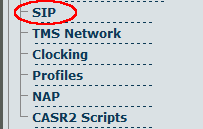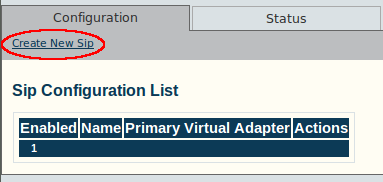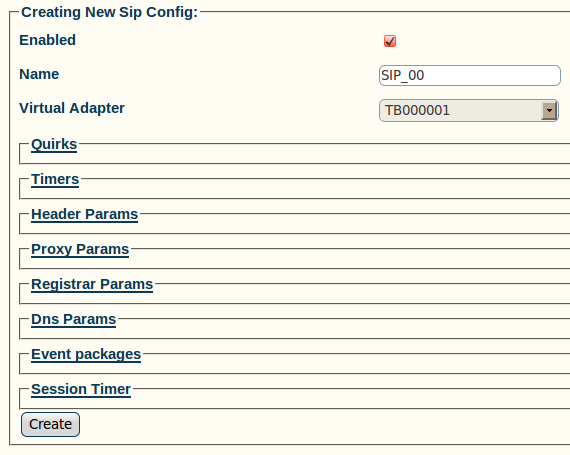Toolpack:Creating a SIP Stack A
From TBwiki
(Difference between revisions)
| (4 intermediate revisions by one user not shown) | |||
| Line 1: | Line 1: | ||
| + | === '''''Applies to version(s): v2.5, v2.6.''''' === | ||
| + | {{DISPLAYTITLE:Creating a SIP Stack}} | ||
Session Initiation Protocol, more commonly known as [[SIP]], is a signaling protocol for packet-based networks and is commonly used, along with H.323 to provide signaling for voice over IP (VoIP) communications. | Session Initiation Protocol, more commonly known as [[SIP]], is a signaling protocol for packet-based networks and is commonly used, along with H.323 to provide signaling for voice over IP (VoIP) communications. | ||
You must now configure SIP signaling for your system. The first step in doing so is to create a SIP stack. | You must now configure SIP signaling for your system. The first step in doing so is to create a SIP stack. | ||
| Line 24: | Line 26: | ||
| − | 4- Verify that the '''SipCfg was successfully created''' message appears | + | 4- Verify that the '''"SipCfg was successfully created"''' message appears |
[[Image:Toolpack_v2.5_SIP_Created.png]] | [[Image:Toolpack_v2.5_SIP_Created.png]] | ||
| + | |||
| + | |||
| + | ==List of Parameters== | ||
| + | |||
| + | * [[Parameter: Enabled|Enabled]] | ||
| + | * [[Parameter: Name|Name]] | ||
| + | * [[Parameter: Adapter|Virtual Adapter]] | ||
Latest revision as of 13:28, 9 July 2012
Applies to version(s): v2.5, v2.6.
Session Initiation Protocol, more commonly known as SIP, is a signaling protocol for packet-based networks and is commonly used, along with H.323 to provide signaling for voice over IP (VoIP) communications. You must now configure SIP signaling for your system. The first step in doing so is to create a SIP stack. To do so:
1- Click SIP in the navigation panel
2- Click Create New Sip
3- Create the new SIP stack:
- Verify that the box labeled Enabled is checked
- Enter a name for the stack
- Select a virtual adapter
- Click Create
4- Verify that the "SipCfg was successfully created" message appears


